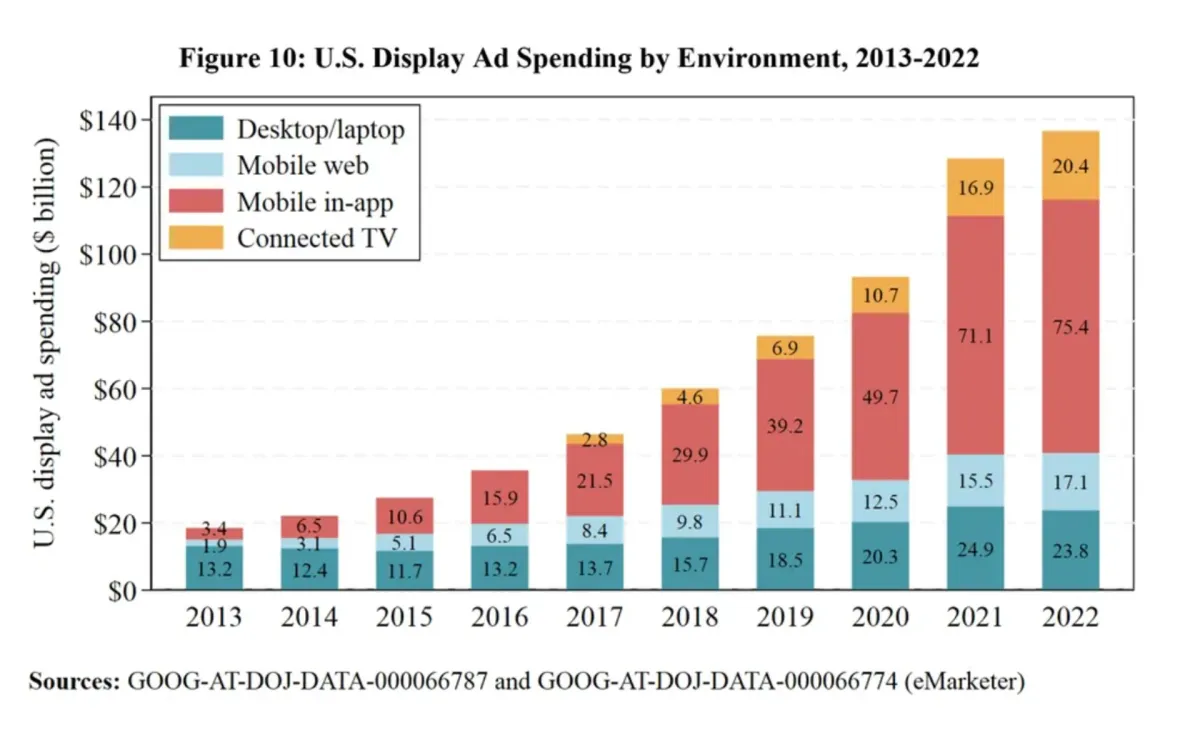
The Department of Justice's (DOJ) antitrust lawsuit against Google over its advertising technology practices concluded on September 27, 2024, after three weeks of testimony. The trial, which began earlier this month, has shed light on Google's dominant position in the digital advertising market and its alleged anticompetitive practices. As both sides prepare for closing arguments, scheduled for November 25, 2024, let's examine the key takeaways from this landmark case.
The DOJ filed the lawsuit against Google, alleging that the tech giant has monopolized the digital advertising market through anticompetitive practices. The case focuses on Google's role in the complex ecosystem of ad tech, where it operates as both a buyer and seller of ad space, as well as the platform through which these transactions occur.
Google's defense
Throughout the trial, Google has maintained that its ad tech practices benefit customers and that the market remains highly competitive. According to Google's Vice President of Regulatory Affairs, Lee-Anne Mulholland, the company presented several key arguments:
- Competitive Landscape: Google argued that ad tech is intensely competitive, with fierce competition from companies like Facebook, Amazon, and Microsoft. Industry witnesses testified to the robust competition in the marketplace.
- Customer Benefits: Google claimed that its integrated ad tech stack offers services that are cheaper, safer, and more effective for customers. Yale Professor Judith Chevalier testified that using Google tools results in a lower revenue share compared to competitors' full-stack average revenue shares.
- Header Bidding: Contrary to the DOJ's claims, Google asserted that header bidding, a technique that allows publishers to offer ad space to multiple ad exchanges simultaneously, is "alive and well," reflecting vibrant competition in the industry.
- Customer Control: Google emphasized that publishers and advertisers maintain control over how ads are bought and sold, with the ability to choose from numerous ad tech platforms.
DOJ's arguments
The Department of Justice presented several key arguments against Google:
- Market Definition: The DOJ focused on what it termed the "open web display advertising" market, although some witnesses acknowledged this term was not commonly used in the industry outside of the lawsuit context.
- Anticompetitive Practices: The DOJ alleged that Google engaged in anticompetitive practices, including the implementation of Unified Pricing Rules (UPR) and other actions that allegedly hindered competition.
- Publisher Testimony: Matthew Wheatland, Chief Digital Officer at Daily Mail, testified for the DOJ, challenging several of Google's expert claims about alternative options for publishers.
Key testimonies
Several witnesses provided crucial testimony during the trial:
- Paul Milgrom: The Nobel Prize-laureate auction economist testified that Google's programs benefited its customers, either advertisers or publishers or both.
- Andrew Casale: The Index Exchange CEO compared ad exchanges to platforms facilitating transactions between credit card holders and merchants, highlighting the two-sided nature of the market.
- Matthew Wheatland: The Daily Mail executive testified that Google's suggestions for alternatives, such as using Adsense instead of DFP (DoubleClick for Publishers) or shifting to app-based advertising, were not viable for most publishers.
US v Google II. Final day. Closing arguments Monday of turkey day. I’ll push your towards the USvGoogleAds website as Arielle’s update nails it all. No surprise. A couple quick things from me. /1
— Jason Kint (@jason_kint) September 27, 2024
Disputed practices
Several Google practices came under scrutiny during the trial:
- Unified Pricing Rules (UPR): Implemented by Google, UPR was criticized by publishers for limiting their ability to set different price floors for different ad exchanges.
- Integration of Services: While Google claimed its integrated services benefited customers, some publishers argued they didn't see these benefits and that the integration didn't necessarily lead to improved ad quality or safety.
- Last Look: A practice where Google's ad exchange got a final opportunity to win an ad auction, which publishers couldn't opt out of before it was phased out.
Market definition controversy
A significant point of contention in the trial was the definition of the relevant market. The DOJ focused on "open web display advertising," while Google argued this definition was too narrow and ignored important segments of the digital advertising landscape, such as ads on social media platforms and connected TV.
Next steps
With the presentation of evidence concluded, both parties will now prepare for the final phase of the trial:
- Revised Findings of Fact: Both sides have until November 4, 2024, to submit their revised Findings of Fact to the court.
- Closing Arguments: Scheduled for 10 AM on November 25, 2024, these arguments will give each side a final opportunity to present their case to Judge Brinkema.
- Judge's Decision: Following the closing arguments, Judge Brinkema will deliberate on the evidence and arguments presented before issuing a ruling.
Implications of the case
The outcome of this trial could have far-reaching implications for the digital advertising industry and tech regulation in general. If the DOJ prevails, Google may be forced to make significant changes to its ad tech business, potentially reshaping the digital advertising landscape. Conversely, a victory for Google could reinforce its dominant position in the market and set a precedent for future antitrust cases in the tech industry.
As the trial concludes and both sides prepare for closing arguments, stakeholders across the digital advertising ecosystem will be closely watching for the final outcome of this landmark case.
Key Facts
- Trial concluded on September 27, 2024, after three weeks of testimony
- Closing arguments scheduled for November 25, 2024
- DOJ alleges Google monopolized the digital advertising market
- Google argues the market is highly competitive and its practices benefit customers
- Key disputed practices include Unified Pricing Rules and integration of services
- Market definition remains a significant point of contention
- Outcome could have major implications for the digital advertising industry and tech regulation

